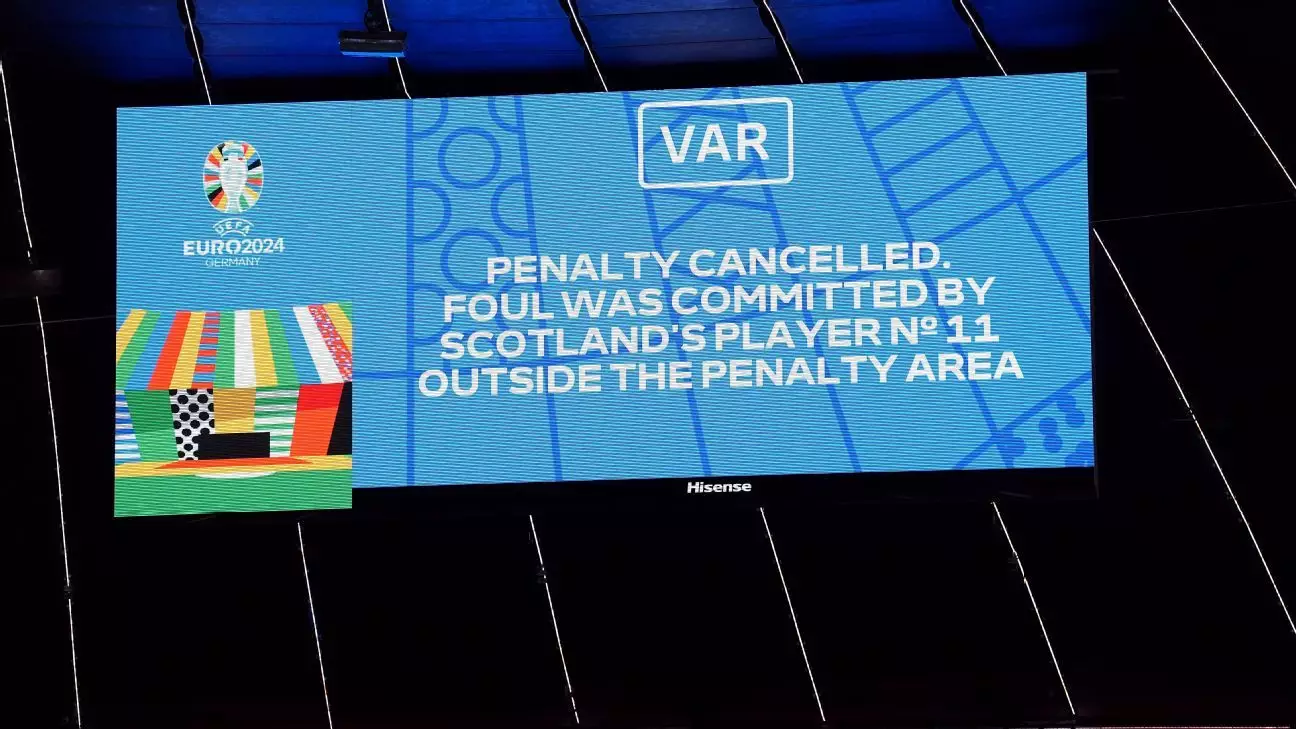Football continues to evolve, and the implementation of technology in the sport is a testament to that. Recently, the International Football Association Board (IFAB) announced the expansion of trials for a reimagined video assistant referee system known as Football Video Support (FVS). This new system diverges from the traditional VAR by allowing coaches to challenge decisions during a match. This article delves into the implications of this change and how it may shape the future of football.
FVS has emerged as a response to the increasing criticism of VAR, particularly regarding its complexity and the lengthy interruptions it creates during matches. Pierluigi Collina, chair of FIFA’s referees’ committee, indicated that FVS aims to offer a streamlined alternative, especially suited for competitions that may not have the financial resources to deploy a full-fledged VAR system. The rationale is clear: enhance the integrity and flow of the game without stretching budgets.
While proving effective in trial runs at events like the U20 and U17 FIFA Women’s World Cups, the FVS is designed primarily for leagues that can sustain only a limited technological framework. The system is operational with up to four cameras—far fewer than the typically utilized setup for VAR, fostering an environment where coaches wield influence over decisions made on the pitch.
The fundamental difference between FVS and VAR lies in the decentralization of decision-making authority. In traditional VAR scenarios, a dedicated video assistant referee oversees the replay process, assisting the on-field referee by signaling when a clear and obvious error has occurred. Conversely, FVS empowers coaches by granting them the ability to challenge contentious decisions up to two times during a match.
These challenges are particularly pertinent in scenarios where the margin for error is thin—such as determining whether a player was offside or if a foul occurred. This empowers coaches to actively engage in the refereeing process, potentially restoring some of the emotional intensity and tactical adjustments that typically accompany on-pitch disputes. However, the trade-off is significant, as the FVS’s limited camera availability means that only apparent errors can be rectified. It underscores a crucial point: FVS is not designed to replace VAR but rather to supplement it in lower-resourced situations.
The introduction of the FVS system highlights multiple benefits. Primarily, it may enable quicker decision-making during matches, maintaining the pace of play and minimizing the disruption that fans and players alike have come to despise. Moreover, it cultivates a more participatory culture within the sport, as coaches must be keenly observant and judicious in deciding when to challenge.
Nonetheless, it is essential to consider the limitations of this new system. As Collina noted, the scope of FVS is inherently restricted by the technological setup, making it unsuitable for leagues like the Premier League, where high-budget VAR systems have become the standard. Additionally, this system relies heavily on the referees’ judgment, potentially leading to confusion and inconsistency. Given that the FVS lacks a dedicated pool of video match officials, questions around the quality of oversight may arise.
As football grapples with the integration of technology into its fabric, the forthcoming IFAB Annual General Meeting will play a crucial role in determining the future trajectory of initiatives like FVS and other trials. These discussions may yield further innovations designed to enhance gameplay while simultaneously protecting the sanctity of human judgment on the pitch.
Other areas of focus during this meeting will likely address common grievances regarding goalkeeper behavior and communication protocols with referees, reiterating the need for a holistic approach to modernizing the game’s rules. As football stands at the crossroads of tradition and innovation, the expansion of FVS trials signifies a willingness to experiment, learning from past mistakes associated with VAR and pushing for a fairer game.
While the FVS system presents exciting possibilities for enhancing decision-making in lower-league football, its limitations warrant careful consideration as it enters wider trial phases. The on-going evolution of football regulations serves both to enrich the game and to invigorate its core values of integrity and respect for the art of play.

